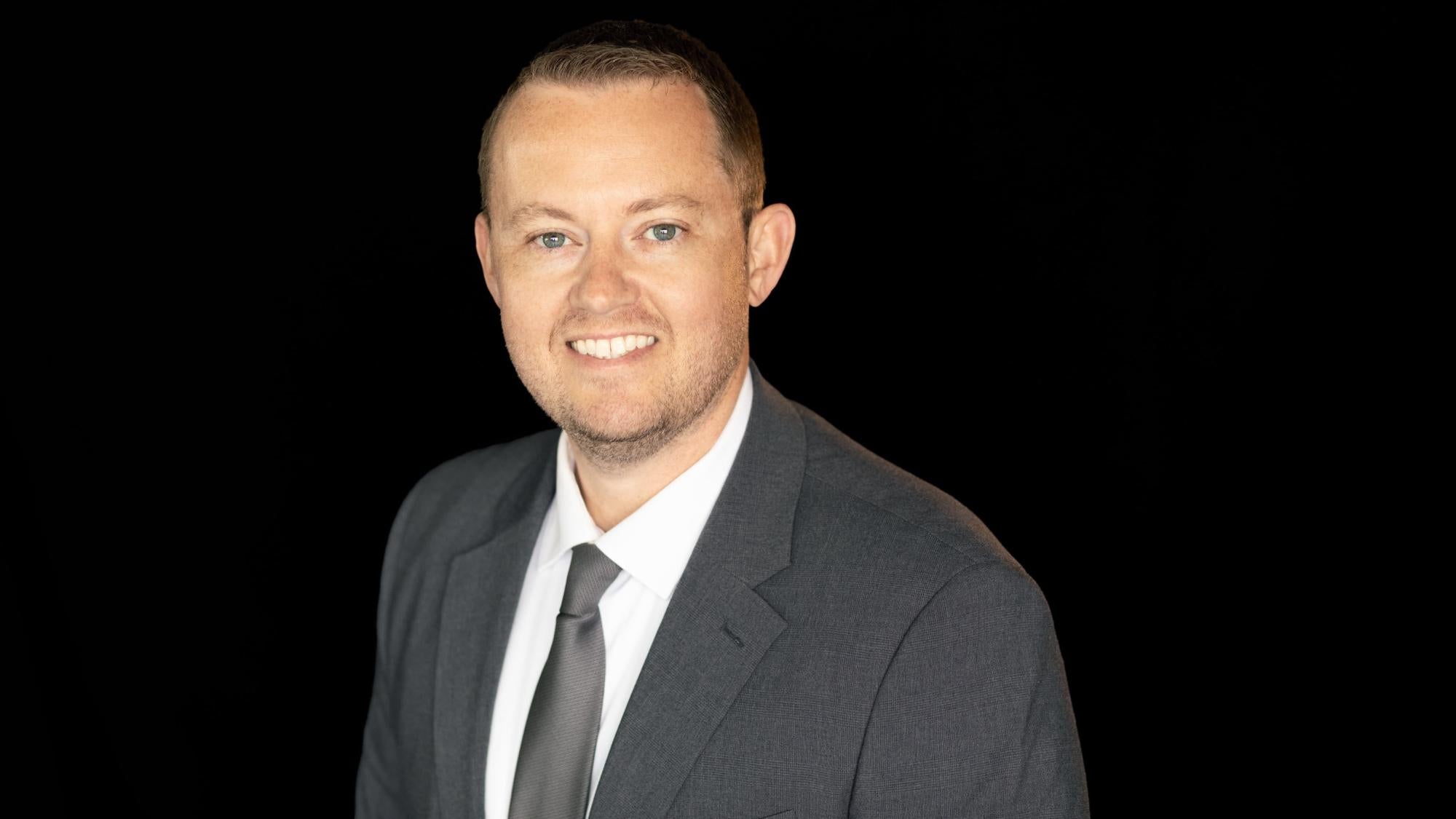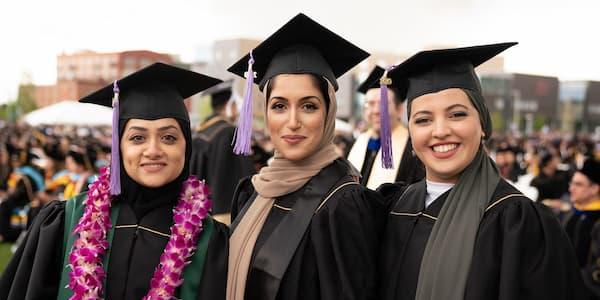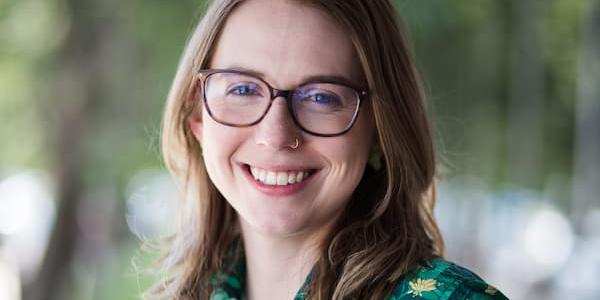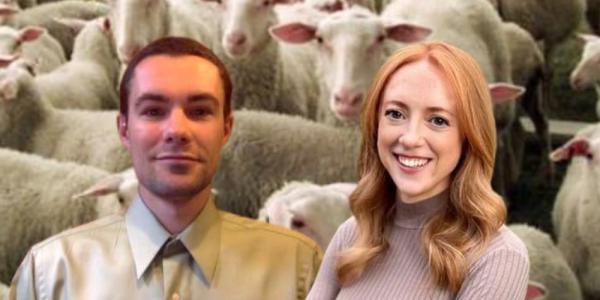Economists Influence the Decisions which Matter Most
Interested? Request more information
Credit hours: 120
Full-time, part-time
On-campus with some online courses available
Start terms: fall, spring, summer
CU Denver’s Department of Economics provides you with the academic foundation and flexibility to meet you where you are and launch you into high-demand career opportunities in almost any discipline. Our programs allow you to master the analytical and quantitative tools needed to formulate and answer the questions that matter to you the most.
Economics is the science of decision making. The rigorous approach which typifies economics lends itself to a remarkably wide field of practical applications. As an economist, you could be employed by private businesses, banks, law firms, consulting firms, international corporations and agencies, public utilities, federal and local governments, and colleges and universities. Study a diverse array of issues such as:
- The effects of government regulations on industries
- The fairness and impacts of taxes
- The effects of various policy tools in fighting inflation and unemployment
- The causes of poverty, and the plight of the homeless
- Pollution, crime, and other social policy issues
Use analytical tools to not only develop data informed decisions, but to also understand the motivations of people and to ensure that the right questions are being posed.
Whether you are interested in analyzing data, becoming a researcher, exploring a corporate career, pursuing law school, understanding health economics, or influencing policy—economics is the area for you.
Why Economics
Many people think economics is about money, but it's broader than that: it's the study of how decisions get made. Thought of that way, there's no human endeavor that can't be analyzed—and, with effort, improved—by economic analysis.
Your economics degree provides a solid applied curriculum while offering you the flexibility and opportunities to pursue many professional paths. You have access to our friendly and accessible faculty who are experts in their areas of study and are eager to help you discover yours.
You will find nearly all your courses are taught by full-time faculty, rather than part-time graduate students or adjunct faculty.
Small classes allow you to get to know your professors. You will not find yourself in any large lecture halls, even in your freshman year.
You will learn from faculty who are actively engaged in cutting edge research relevant to important questions in economics, public policy, legal issues, and business.
Your Economics degree pairs perfectly with other programs
We offer two unique dual degree programs that can be completed in as little as 4 years. If you love math and want to fully understand how the mathematical and statistical models can apply to real-world questions, choose the BA in Economics and BS in Mathematics dual degree. If you are interested in how economics impacts financial markets, instruments, and institutions, consider the BA in Economics and a BSBA in Finance dual degree.
A BA in Economics can be coupled with almost any discipline to develop a niche area of expertise. Whatever question you are passionate about studying, we can help you delve into the data behind it.
We also offer “hands-on" experience and training in the field of economics through internships and teaching and research assistantships within the department. Because of our ideal location in the heart of Denver we have a developed network of internship opportunities with agencies and local businesses. Many students who go through an internship are subsequently offered job opportunities.
International students who wants to work in the United States after graduation
Your Economics degrees is classified as STEM (science, technology, engineering and mathematics) fields, offering international students the advantage of the opportunity to apply for up to three years of optional practical training (OPT) in the US after graduation.
Careers in Economics
Alumni Spotlight: Michael Zabawa

My economics degree provided a unique analytical lens and solid foundation to build upon for my career success. The critical thinking skills and causal identification strategies of econometrics have played a pivotal role in my day-to-day work as a Data Scientist and Financial Analyst at two leading national banks.
—Michael Zabawa,
VP Lead Financial Analyst at Wells Fargo
BA in Economics and BS in Mathematics, 2019
Trajectories
Majoring in Economics provides you with the flexibility and opportunities to not only work in the field of economics, but in business and governmental careers of all varieties.
Trained economists are employed by:
- Private Businesses
- Consulting Firms
- Banks
- Financial Firms
- Law Firms
- Technology Companies
- Retail Firms
- Health Care Industries
- Public Utilities
- Federal and Local Governments
- International Organizations
- Colleges and Universities
CU Denver Economics Alumni Careers
Economics majors from CU Denver have recently gone on to prestigious positions at companies such as:
- Qwest
- Merck Pharmaceuticals
- Citicorp
- Lockheed Martin
- Sandia Labs
- Chase Bank
- PNC Bank
Economics is a growing career area
Learn about careers and salary information at the American Economic Association
Or continue your education with a graduate degree
Many undergraduate economics majors will go on to pursue graduate degrees. We offer two BA+MA/MS options (below), while other graduates enroll in MBA programs, law school, or into other graduate programs at prestigious universities such as Harvard, Stanford, University of Chicago, University of Rochester, and Columbia.
Curriculum
Whatever your career and learning goals are, the BA in Economics allows you to custom tailor your experience and sets you up for success.
Majoring in Degree: 40 hours
Our programs train you in basic economic theory, the use of statistical techniques to analyze economic phenomena, and more specific fields within economics. Course topics include:
- Labor Economics
- International Trade
- Developing and Transitional Economies
- Health Economics
- Money and Banking
Interested in delving into the applied mathematical and statistical skills that are the building blocks for developing economic models? Consider the BA in Economics and BS in Mathematics dual degree.
Want to couple valuable economic theory and principles with the practical financial applications of modern business? Check out the BA in Economics and a BSBA in Finance (with CU Denver Business School) dual degree.
Do you feel the call to make a difference in influencing health care policies? Add the Certificate in Health & Development Economics and/or pursue the BA in Economics + MS in Health Economics.
See the Extend your degree tab below for more information on how to shape your degree.
CU Denver Core: 34-40 Hours
You’ll be educated in
- English and mathematics
- International and cultural diversity perspectives
- Arts and humanities
- Behavioral, physical, and social sciences
College of Liberal Arts and Science Core—15 Hours
These courses give you a better understanding of the issues and skills you need to succeed.
Topics include:
- Logic, Language, and Scientific Reasoning
- Psychology
- Writing for the Sciences
- Public Health
Minor in Economics
For non-degree majors
If you are a non-economics major, you can add a minor in Economics to your degree by completing at least 15 hours of specified coursework and electives. You will need to see your CLAS advisor to declare this minor.
At least 15 hours of Degree courses
Topics include:
- Macroeconomics
- Microeconomics
- Law and Economics
- Economics of Race and Gender
- Managerial Economics
Structured dual degree programs
You, like many of our students, may be interested in one of our structured dual degree programs.
BA in Economics and BS in Mathematics
This dual degree means that you receive both a BA in Economics and a BS in Mathematics. You pair a solid training in the mathematical and statistical sciences which is fundamental to optimally preparing yourself for expanded career potential in economics or for graduate school. Similarly, a solid training in quantitative and qualitative economic principles offers significant benefits to mathematics majors who seek industrial and/or consulting positions.
Learn more about the Economics and Mathematics dual degree
BA in Economics and a BSBA in Finance from the CU Denver Business School
Economics and finance are distinct disciplines that are highly complementary. You will get the quantitative and theoretical skills of an economics degree and the hands-on finance applications of modern business. Learn practical data management and econometric skills and gain familiarity with financial markets, instruments, and institutions. The program will equip you with an applied interdisciplinary skill set that integrates creative knowledge with the technical expertise that can take your career anywhere. A dual degree allows you to receive both a BA in Economics and a BSBA in Finance.
Learn more about the BA in Economics and a BSBA in Finance dual degree
Certificate
The Undergraduate Certificate in Health & Development Economics
This certificate gives you a strong foundation in economic concepts, data analysis, and policy issues pertaining to healthcare and economic development. There is increasing demand for people who both understand health related issues and policies and have the quantitative skills that enable them to analyze and present real-world data to support effective decision-making. This Certificate in Health & Development Economics teaches you to use data to develop and evaluate programs and policies using modern statistical methods. You will have both the applied skills and institutional knowledge in health research. This combination also offers a springboard towards pursuing a graduate degree in Health Economics.
Learn more about the Undergraduate Certificate in Health & Development Economics
Add a Masters in Economics to your Bachelor degree in as little as one extra year (4+1)
Save time and tuition while expanding your career opportunities at the same time by enrolling in one of our BA + MA/MS programs:
BA in Economics + MS in Health Economics
Benefits include
More career opportunities: Some career paths require that job candidates hold advanced degrees. Completing the BA + MA/MS program allows you to apply for higher level positions more quickly, providing an advantage in a competitive job market.
Saves time. Combining the Bachelors and Masters programs allow you to complete your undergraduate and graduate studies quickly, typically within five years instead of six or more.
Cost: A shorter timeline to completion means less tuition, fees, and related educational expenses.
Teaching assistantships: The Department of Economics may offer you, as a qualified graduate student, research, or teaching assistantships. Combining the BA and MA/MS degrees may allow you to access these opportunities.
Faculty: Combining the BA and MA/MS degrees allows you to continue to take courses at the graduate level from the same familiar, award-winning, and caring faculty members.
- To be able to apply the general concepts learned from economic theory and methods to specific fields of economics.
- To be able to articulate an economic hypothesis and interpret econometric tests of the hypothesis.
- To be able to explain and evaluate the relevant benefits and costs to consider when comparing decision options and policy choices.
- To be able to communicate, in written form, basic economic theories, concepts, analytical methods, and policy choices.
Tuition
The cost of tuition for the Bachelor of Arts (BA) in Economics is different for in-state and out-of-state students. See the link for the current table of rates.
Residents of Western Interstate Commission for Higher Education (WICHE) states may qualify for reduced tuition rates. The Western Undergraduate Exchange (WUE) program requires students to maintain current residency in WICHE state until degree completion.
Scholarships
Each year, CU Denver undergraduate students are awarded over $30 million in scholarships from institutional, local, state, and national sources. Learn more, and apply here.
Other opportunities
The department of Economics and other departments have paid positions (both in the work-study program and outside of it) which may include jobs as graders, teaching assistants, and learning assistants. Please expect to have to apply. Learn more here.
Admission Requirements
If you are an incoming freshman to CU Denver (in-state, out-of-state, and international applicants), you can apply through either the Common Application or the Milo Application. Transfer students will need to submit the Milo Application.
Incoming first-year students
CU Denver requires that students complete the Colorado Higher Education Admission Requirements (HEAR). You will not have to meet all Minimum Academic Preparation Standards (MAPS) for admission, but you will need to complete CU Denver coursework by graduation.
Transfer Students
We have strong connections with other four-year and community colleges. If you have completed more than 24 credits of transferable coursework, you will be evaluated for admission on the basis of your college GPA without regard to your high school performance. If you have fewer than 24 credits, you will be evaluated based on both your high school and college GPAs. For more information and to plan your transfer, see transfer admissions in the admissions office.
If you are in your first or second semester at one of the participating Colorado community colleges and plan to transfer to CU Denver after earning your associate degree, CU Denver Bridge to Bachelors might be a great program for you. To qualify, you must meet the criteria including meeting regularly with your assigned CU transfer advisor while you are attending community college.
International Students
You will need to begin your application through the Office of International Affairs. They will help you manage your application process.
Application deadlines
Spring
Domestic Application: January 1
International Applications: Priority is September 15, and Final is October 15
Summer
Domestic Applications: May 15
International Applications: Priority is January 15, and Final is March 15
Fall
Domestic Applications: August 1
International Applications: Priority is March 15, and Final is May 15
Economics in the News
Economics News
- Russell Sage Foundation Grant Awarded for 'The Intergenerational Effects of Import Competition'
- CU Denver's Chloe East Featured in 9News Article About Deportation in the Construction Industry
- NPR's Planet Money Interviews Dr. Chloe East on the "Chilling Effect" of Deportations
- Dr. Chloe East Speaks to Denver 7 on Mass Deportations Following Inauguration
- POLITICO Refers to Dr. Chloe East's Research in Article: "Americans hate high prices. Mass deportations could spark new surges."
- NYT Features Research by Economic Professors Velasquez, Mansour, and East
- Andrea Velasquez Talks Deportation in Foreign Policy
- Dr. Ryan Brown and Dr. Andrea Velasquez awarded NIH R03 grant for their project "Long-term Effects of Universal Health Insurance in Developing Countries: Evidence from Mexico."
- BBC News gains Dr. Chloe East's perspectives on universities' advice to US students abroad
- Wall Street Journal cites research by CU Denver Economics Professors Velasquez, Mansour, and East in article on post-election inflation

Making Education Work for All
At CU Denver, making education work for all means breaking down barriers so every learner can succeed. Through inclusive policies, programs, and partnerships, we’re building a culture where opportunity isn’t defined by identity but by ambition and impact. Learn more at our Office of Access and Campus Engagement (ACE)

Find your people
Campus can feel like a huge place. We help you find your people by offering the experience of a more traditional, small liberal arts program—for a fraction of the cost. We offer a variety of clubs and networking opportunities.
- Economics Club
- Denver Association of Business Economists (The economics department maintains a membership for students to utilize)
- A wide variety of CU Denver clubs

The Interdisciplinary Approach
One of my favorite aspects of the Economics Department is its interdisciplinary approach. This program developed my programming and critical thinking skills while teaching economic theory. These skills gave me a strong advantage when I entered the workforce!
—Jordan Bass,
Director of Data Science at Colorado Behavioral Health Administration
BA in Economics, 2018




